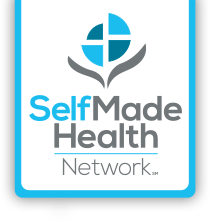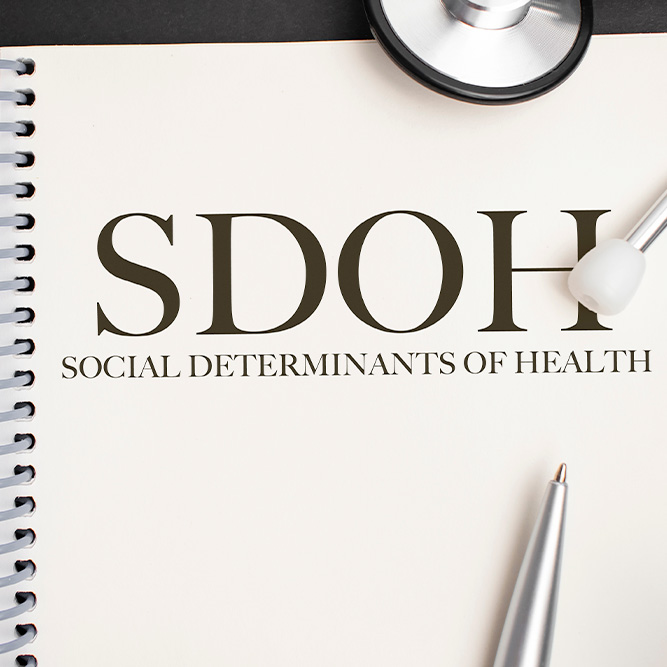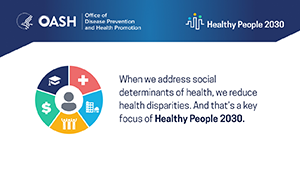
Cancer Prevention Resources
Together we can save lives.
People who proactively work to reduce their risk for disease not only live longer and healthier lives, but also save money on healthcare expenses each year.
These national resources share advice on how to start avoiding known high-risk behavior and connect with recommended preventive screenings.
American Lung Cancer Screening Initiative: Leaders for Lung Cancer Screening
Mayor Ken Adams (Olive Branch, Mississippi)
The NCI shares risk factors, genetics, prevention overviews and prevention research aimed to educate the public in an easy-to-understand format.
ctttp.org/accredited-programs
The Council for Tobacco Treatment Training Programs is the accrediting body for Tobacco Treatment Specialist Training (TTS) Programs. This list shares the training programs and accreditation options for TTS professionals who will be assisting individuals seeking to stop using tobacco.
National Breast and Cervical Cancer Early Detection Program
CDC’s National Breast and Cervical Cancer Early Detection Program (NBCCEDP) provide low-income, uninsured, and underserved women access to timely breast and cervical cancer screening and diagnostic services in every state.
CDC’s Bring Your Brave Campaign
The CDC’s Bring Your Brave campaign provides an array of resources about breast cancer.
Screen for Life: National Colorectal Cancer Action Campaign
CDC’s Screen for Life: National Colorectal Cancer Action Campaign informs men and women who are 50 years old or older and other “high risk” populations about the importance of getting screened for colorectal cancer regularly.
Prevent Cancer aims to stop cancer before it starts by focusing on cancers that are more preventable including breast, cervical, colorectal, lung, oral, prostate, skin and testicular cancer.
The Guide to Community Preventive Services (The Community Guide) provides evidence-based recommendations along with resources to help you select interventions to improve health and prevent disease in your state, worksite or business, community organization, healthcare organization, and community.
Health Plans: Accounting for Socioeconomic Status (SES) in HEDIS Measures
The National Committee for Quality Assurance (NCQA) began adjusting for health disparities in performance between low and high socioeconomic (SES) populations. The NCQA determined that stratifying Medicare plan performance can account for low-income subsidy, are dual eligible (LIS/DE), and/or are disabled populations in measurement to facilitate fairer health plan comparisons. Key healthcare services addressed include: breast cancer screening, colorectal cancer screening, along with other relevant chronic diseases screening and management as well as hospital readmissions.
https://www.ncqa.org/hedis/reports-and-research/hedis-and-the-impact-act/NCQA Is Developing a New HEDIS Measure for Colorectal Cancer Screening Follow-Up
The National Committee for Quality Assurance (NCQA) is partnering with the Council of Medical Specialty Societies and the American Gastroenterological Association to develop a new HEDIS® measure to improve follow-up care for patients with abnormal colorectal cancer screening results. The proposed measure will evaluate appropriate follow-up after an abnormal index screening result.
https://www.ncqa.org/blog/ncqa-developing-hedis-measure-for-colorectal-cancer-screening-follow-up/https://www.youtube.com/watch?v=lap2XHQXY0k
https://www.nationalacademies.org/event/10-25-2021/promoting-health-equity-in-cancer-care-a-virtual-workshop
https://www.cms.gov/files/document/zcodes-infographic.pdf
Vulnerable populations are disproportionately impacted by cancer burden including: low-income, uninsured and racial and ethnic populations. This roundtable discussion includes proposed multi-level actions required at the healthcare system, healthcare practitioner, institutional, and government levels to ensure equitable access to precision medicine advances for all individuals (regardless of geography and income) diagnosed with cancer.
“Watch the full roundtable to learn more about disparities in precision cancer care, and the solutions necessary to ensure health equity for every patient, every day, everywhere.”
https://connection.asco.org/do/disparities-precision-cancer-care-multifaceted-problem
As part of the recent relaunch of the National Cancer Moonshot initiative, the President’s Cancer Panel Report “Closing Gaps in Cancer Screening: Connecting People, Communities and Systems to Improve Equity and Access” was released. This comprehensive report outlines significant opportunities to close some critical gaps while improving cancer health and corresponding outcomes throughout the nation. This report also outlines national strategic goals, they include: a.) improve and align cancer screening communication; b.) facilitate equitable access to cancer screening; c.) strengthen workforce collaborations to support cancer screening and risk assessment; d.) create health information technology (HIT) that promotes appropriate cancer risk assessment and screening.
https://prescancerpanel.cancer.gov/report/cancerscreening/
 Social Determinants of Health in Cancer Care (American Society of Clinical Oncology)
Social Determinants of Health in Cancer Care (American Society of Clinical Oncology)